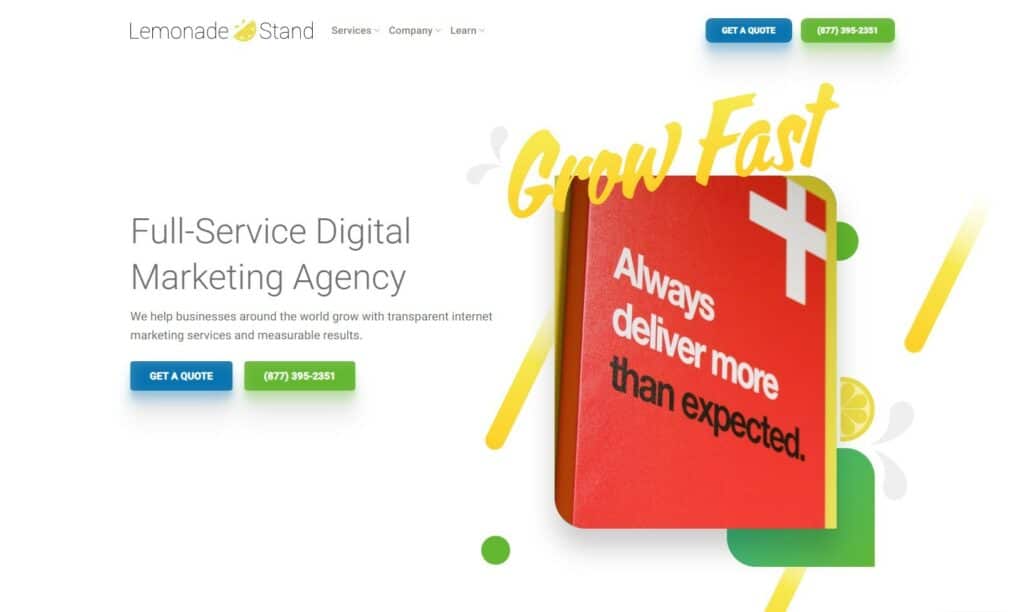So do you need an employee handbook for a small business?
Easy answer… YES!
Great! Now that you know the answer, you can ignore the rest of this article.
But I suggest that you read on to gain a better understanding of employee handbooks and how much they can impact your business!
A few things to note about employee handbooks –
This is required by law, and there are certain things that you will need to include in this book depending on the state in which you do business or where your people are employed. Now, I am, by no means, an attorney, so I cannot offer legal advice on what you MUST include in your employee handbook – especially with the requirements changing for each state. Please reference the U.S. Department of Labor website here or check in with your local state authorities for more official information on what you need to include in your handbook.
Any business currently operating and with employees (even if that employee is just yourself) should have an employee handbook. This document serves as the legal agreement between you (the company) and your employees as to how certain scenarios will be approached while they are employed by your company.
However, this isn’t just a legal requirement! I want to show you here why an employee handbook can help your company to thrive! Why this seemingly lame and purely legal document could help you to build out your company culture and increase the trust that your team members have in you and your company.
Again – do not take any of this as legal counsel and please make sure that you understand the legal requirements when creating your handbook, but I am now going to jump into a few sections that I encourage you to make sure you include and how they can be influential to your culture.
Introduction
I would absolutely recommend that you include an introduction to your company at the very beginning of this handbook and make sure that it is required for all new team members to read through this handbook when they start.
In the introduction you’re going to want to include a history of your company. How did you start? How have you been able to get to a point where you’re now hiring team members and blessing people and their families by providing employment? Why does that story make this such a great place to work?
Include your company’s core values! Everything that helps your company to have a great culture should be detailed in this introduction. Maybe you even talk about key leaders of the company and how they have helped to grow the company or how they approach the mentoring and training of all the other team members.
I would also suggest including here what a model employee would look like. What kind of a person do you expect them to be as they strive to contribute to the team in their new role? Your company might have some great values, and I’m sure you’d want to see all of those in your team members, but what else might you want to see in them? How will they know if you’re satisfied with who they are as people as well as just in their job function?
Talk about the things that make your company unique. This is the place where you can get people excited about their first day and excited to keep reading to find out all that they can about the great place that they’ve found to be a part of!
Benefits
Benefits should be a major section included in your handbook.
Never make an employee guess about what benefits they have or don’t have. If it is a benefit that your company offers, state it and state it clearly!
Detail out every single benefit that your company offers and what it looks like. Don’t be vague on this subject! If you don’t feel that you can clearly explain your benefits or think that your employees would be upset by seeing the benefits offered spelled out like this, you might need to revisit the benefits that your company offers to ensure that you are competitive and can retain the talent that you recruit. If you know that you offer great benefits and people should be pleased with what you offer then be as transparent as humanly possible!
Indicate whether or not each individual benefit applies to all employees or only to certain ones. If you mention that a certain benefit only applies to specific employees, PLEASE make sure that it is clear to whom it applies and to whom it does not. You do not want a team member thinking that they will be paid for all holidays only to have to disappoint them after the actual holiday happens and let them know that they weren’t eligible for this benefit. Things like this can cause major resentment and can even be a cause for someone to seek employment elsewhere; however, if the expectation is clearly set from the beginning, then they know what they’re getting into and won’t be upset or complain when the situation passes.
Scheduling
In today’s world, it is increasingly important that you spell out clearly how you expect your team members to complete their work.
By this I mean, do you care what time and where they are completing their work? Do you allow remote work? Are you flexible with hours? Is this maybe dependent on the position each team member has?
Again, the point of this is to increase the trust that your employees have and to make sure that they understand how they should work. If all of your positions do not allow for remote work or flexible schedules, then don’t put something in there like “We provide flexible schedules for all!” It might be true for most of your positions, but maybe a customer service position wouldn’t have any flexibility in how their schedule needs to be set up. If you’re promoting that everyone can have flexible schedules and work environments and this is a great benefit of working for you, then you could see how maybe this customer service person would start to feel like they aren’t a real part of your team or that their position isn’t worth as much to you to be included in all of your benefits and perks.
Spelling this out can go a long way in making people feel valued, because they have expectations set for them.
Career Progression
Another section I encourage you to be very clear about is the career progression that a team member might see while working for you.
This is a really big issue that is causing a lot of people to reevaluate their employment right now. Ambiguity surrounding how one can progress is not an attractive company feature anymore. People want to know exactly what they need to do to be able to take the next step in their career and how long it will take them to get there.
So make sure to mention whether or not there is room to grow? How do pay increases work? Is it based on time with the company? Or will they be needing to meet certain requirements to have an increase? How do benefit increases work? Will PTO balances increase at any point? How does that happen? When are the more role-specific or title-specific benefits unlocked?
The more detail that you can provide here, the more your team members will want to stick around for the long haul!
Disciplinary Action
Just as much as an employee would want to know how to progress their career, they’ll also probably be fairly interested to know how to avoid taking a step backwards in their career.
If you have certain disciplinary actions that will take place when things happen or team members act in a less-than-perfect manner, tell your team about it! Make sure that they are aware of these things and what you do not want them to be doing or how you don’t want them to be acting.
This might include their actions around the office as well as actions out of the office or when engaged in external communication or when they are representing your company in any capacity.
You might not be able to specify every single scenario that could come about, but provide some guidelines on how they should act and what could happen or what might be at stake if they do not adhere to these guidelines.
As long as the expectation is set, people will generally be pretty accepting of the consequences. I’m not guaranteeing that everyone will always be happy about it, but they at least would have known going in what could potentially be the outcome.
Culture Will Take you to the Moon
We always hear about companies wanting to go to the moon, or to be the next big thing or the next tech unicorn. I can tell you that one of the biggest secrets to having a successful and joyful company is the culture that you cultivate.
Focus on your culture and how it is shaping every single day. This should be a HUGE focus of your company, and it will affect you in more ways than you could ever know.
Culture has been a top priority for us at Lemonade Stand, and it continues to be a top priority, and it always will be. We have discovered that this is the way to grow a company, and we are sticking with it. I encourage you to do the same as you are trying to grow your own small business into something bigger and more far reaching. We have a number of articles that we’ve written about the importance of culture. Read a few of them here!
A well-written employee handbook can play a pivotal role in the creation of that culture for all of the reasons that I have explained in this article and for many more!


